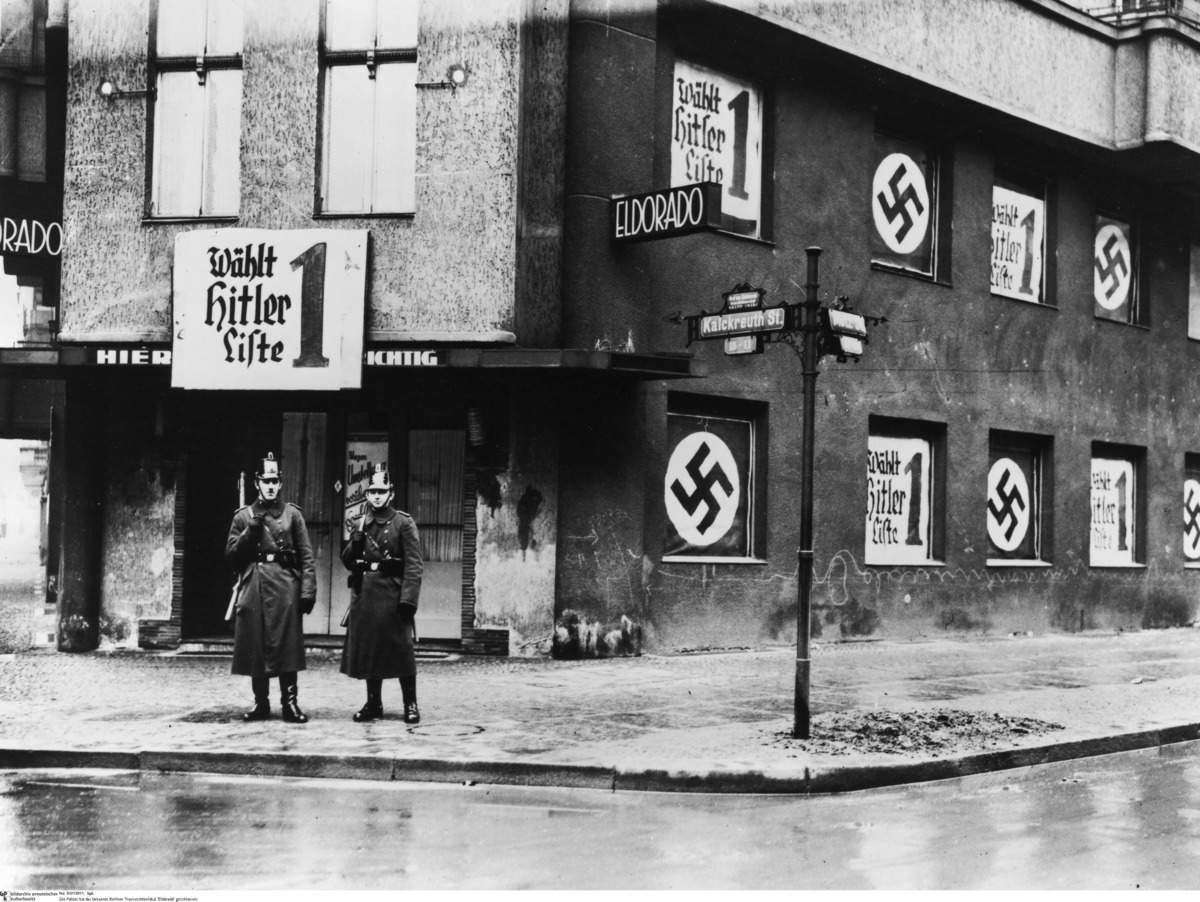Abstract
In the 1920s, Berlin had become famous for its liberal, bohemian
atmosphere and its sexual permissiveness—just two of the many reasons
why so many artists had been drawn to the city in those days. But
“public morality” changed very quickly under Hitler. In March 1933,
Berlin’s legendary cabaret bar “Eldorado” was closed by decree of the
city’s chief of police. The bar tolerated cross-dressing and catered to
gay, lesbian, bisexual, trans* patrons, along with a
heterosexual-identifying audience. In the photograph below, the windows
of the famous Kalckreuthstraße bar have been covered over by swastikas
and NSDAP election posters: “Vote for Hitler—List 1.” Shortly
thereafter, many other bars known as meeting places for gay men and
lesbians were closed in response to “moral complaints.” In 1935, Article
175 of the Reich Criminal Code (which criminalized homosexuality) was
tightened, and homosexual acts became subject to more severe forms of
punishment. Many of the 50,000 homosexuals sentenced under Article 175
wound up in prison or concentration camps.
